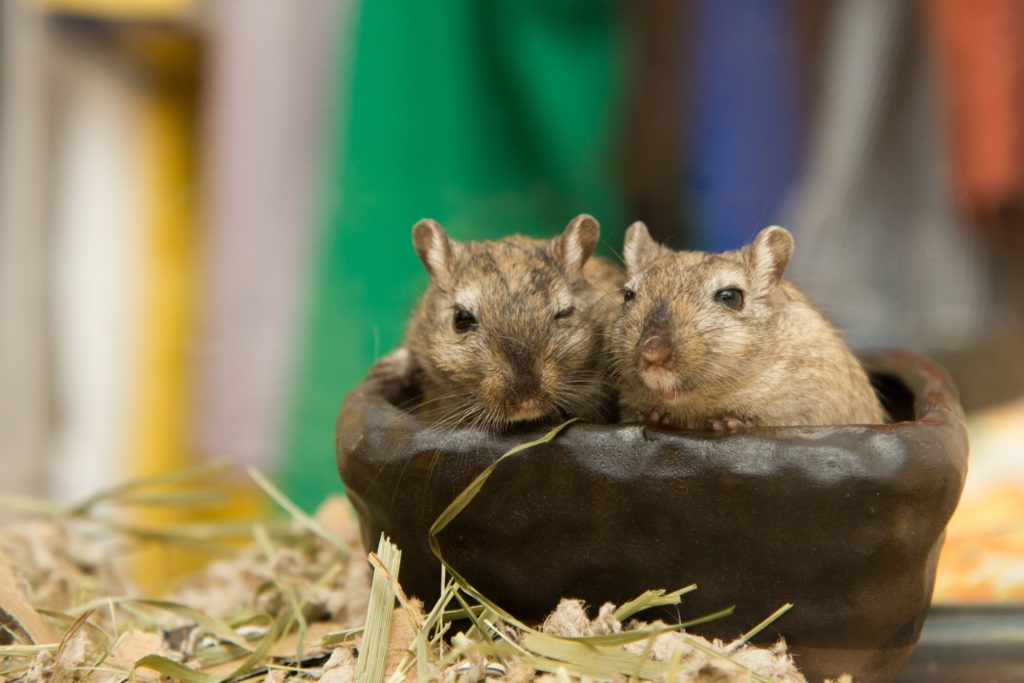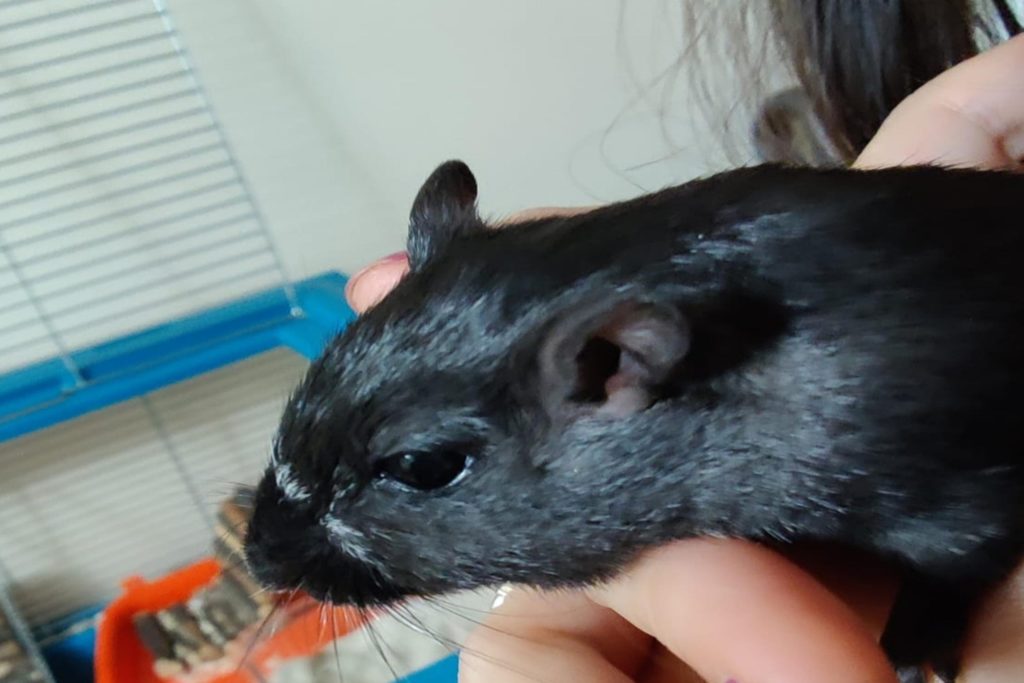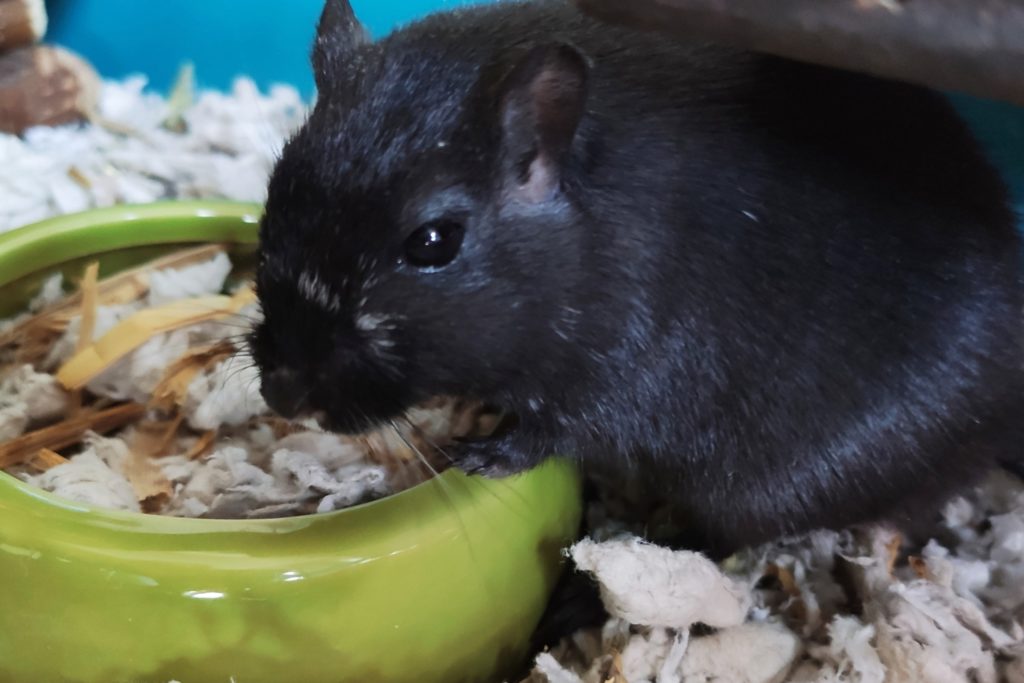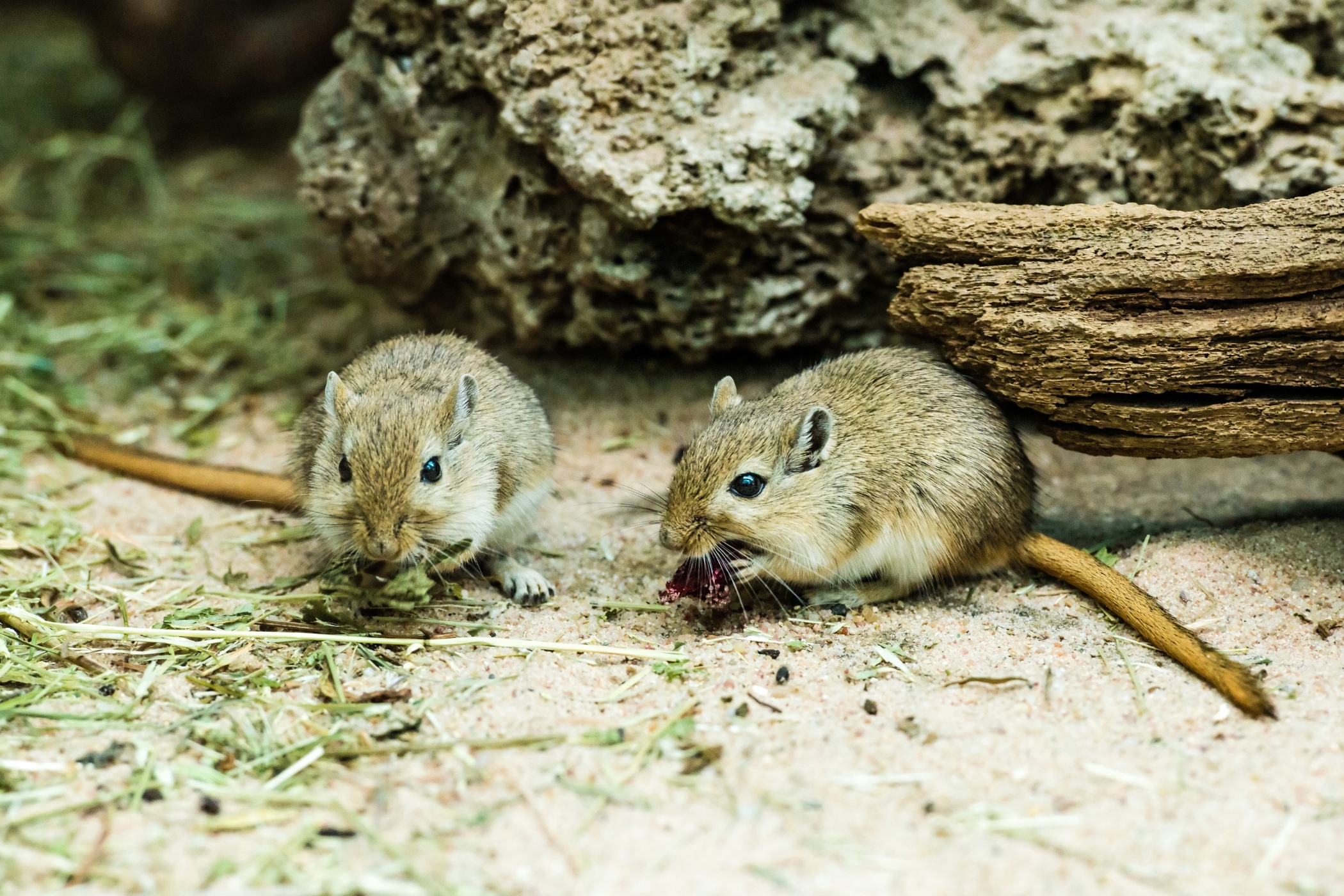How to Care for Gerbils
If you’re looking for a small, fascinating pet, you might want to consider gerbils. Gerbils are small, furry animals similar to hamsters and mice that make great pets for people of all ages.
Just like other pets, gerbils have specific care requirements you must follow if you plan to take care of them well.
I’ve had gerbils for years and was even breeding them for a while. They’re relatively low maintenance and make easy pets.
What Are Gerbils?
As mentioned previously, gerbils are small furry animals with an appearance similar to hamsters and mice. Gerbils are originally from Asia and Africa and are used to living in dry environments.
This unique critter is known to be friendly and active, so you can enjoy watching them burrow in their cage and interact with you.
Gerbils that are sold as pets can reach up to 5 inches in length and weigh up to 135 grams. Males are typically larger than females, though it depends on the specific gerbil you get. On average, gerbils live between 3 to 4 years in captivity if given good care.
Gerbil Varieties
Believe it or not, there are actually almost 90 species of gerbils in the world! However, not all of these species are kept as pets.
The most common species kept as a pet is the Mongolian gerbil, though some closely related species are also kept as pets occasionally.
Not all gerbils are made the same. There are many different coat colors that can be found on gerbils including:
- Black
- Dove
- Lilac
- Slate
- Agouti
- Argente
- Sapphire
- White
- Honey
- Nutmeg
- Polar fox
- Burmese
- Siamese
There are also different color patterns that can be found in gerbils including:
- Solid
- Spotted
- Pied
- Mottled
Captive breeding has led to these many varieties of gerbil colors, so you can pick your favorite and bring it home.

Gerbil Housing Requirements
Before bringing your gerbil home, you should prepare its new home. To keep your pet happy and healthy, you need to give it enough space and activities in its home.
Because they are used to warm and dry environments, gerbils do best in tanks rather than open wire cages. However, you can make or find tanks that have both of these components if you plan to build your gerbils a mansion to play in!
Your tank should have at least 10 gallons of space per gerbil. If you have three gerbils, that means you need at least a 30-gallon tank to give them enough space to run around and play.
You should also have a designated spot for food and water that they can access at all times.
Make sure you fill your gerbils’ tank with lots of nesting and bedding materials. Gerbils love to burrow and make tunnels, so they can become stressed if they can’t burrow in their home. Hay, aspen shavings, and paper bedding products usually make the best substrate for gerbils as they’re safe and cozy.
A rough stone or wood caves to climb make good additions to any gerbil tank as they can help your gerbils wear down their claws. They can also use these to mark their scent or even hideaway. This can make them feel more comfortable in their home over time.
Finally, make sure you have at least two gerbils at a time. Gerbils are social creatures and can become stressed if left on their own, leading to a shorter lifespan. The more the merrier!

Gerbil Environmental Conditions
You should also consider the environment outside your gerbil’s tank before deciding where to place it in your home.
Gerbils are used to living in dry conditions, so you should make sure the tank is in a place that is warm and dry. Don’t put them next to a vent or air conditioner as that can make them sick.
You should also make sure the place where your gerbils live remains relatively quiet. A side room or adult bedroom may be the wisest choice to keep your gerbils at peace rather than in a rowdy living room.
Finally, make sure you clean your gerbils’ tank regularly. You should spot clean throughout the week and change the bedding fully every 1-2 weeks. Your gerbils’ bedding should never be wet or smelly. However, you should leave just a small amount of old, unsoiled bedding behind to make sure the home still smells like your gerbils.
Gerbil Dietary Needs
Gerbils need to eat a combination of seeds, leaves, and herbs. A well-rounded diet will give them the nutrients they need to grow and remain healthy.
There are many commercial gerbil foods that come prepackaged to make feeding your gerbils easy. Just make sure you follow the manufacturer’s recommendations for feeding portions so you don’t overfeed or underfeed your furry friends.
You should also spruce up your gerbils’ diet occasionally with yummy supplements. Gerbils love fruit and vegetables, so don’t be afraid to offer them a piece of apple or cucumber occasionally. However, you should not feed them any grape or rhubarb as these are toxic to gerbils.
It is recommended that gerbils are fed by scattering the food over their bedding so they can forage. This can prevent fighting and allow them to engage in their natural instincts. Always make sure your gerbils have access to clean water via a drinking bottle so they can stay hydrated as they play and eat.

Common Gerbil Health Conditions
To take the best care of your gerbils, you should be aware of some common health issues that can arise in gerbils. For example, gerbils can actually catch colds from humans, so make sure you don’t handle your gerbil directly if you’re sick!
Another common condition is Tyzzer’s disease. This is a bacterial infection that can result in loss of appetite and diarrhea, which can kill your gerbil quickly. Take your gerbil to the vet immediately if you notice any of these symptoms.
Finally, make sure your gerbils’ home has safety in mind. Injuries such as bone breaks and fractures are unfortunately common in such small creatures, so make sure your gerbils can’t fall from a large height or get stuck under heavy objects in their cage.
Gerbils can make excellent pets as long as you take care of them well. Giving your gerbils the proper housing, diet, and medical care will help them live long, happy lives by your side.

